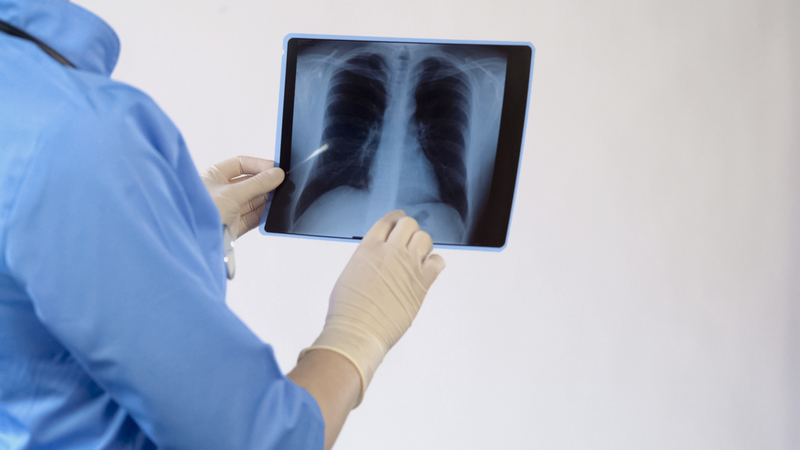This year in particular the focus of Lung Foundation Australia’s Pneumonia Awareness Week (May 13–20) is very much on members of the community who are the most vulnerable, numbering among them those impacted by lung disease and lung cancer, but also people aged 65 years and older. Each year, more than 78,000 Australians are hospitalised with pneumonia and the average length of stay in acute care increases with age – from 6 days for those under 65 to 13 days for those 65+.
Back in 2014, the ‘Love your lungs at 65 years young’ research revealed that 2-in-3 Australian older adults considered themselves to be younger and fitter than their parents were at their age and 65% of those aged 65-74 didn’t consider their age to be a health risk factor. Regardless, it is an unfortunate fact of life that the immune systems of people 65 years and older, even in those baby boomers who feel fit and healthy, are less effective at dealing with infections – this puts them at increased risk of severe disease.
Vaccines are not 'just for kids'
The misconception that vaccines are for kids persists: only 1% of those aged 18–74 surveyed thought vaccination was important in maintaining good health throughout their adult years.
“Vaccination against the influenza virus and pneumococcal disease has been recommended for adults for many years now,” said Dr Eddy Bajrovic, Medical Director of Travelvax Australia.
“Originally targeted at older people, seasonal influenza vaccination is now recommended much more widely across the community and is free for people aged over 65, anyone with a chronic illness, and for pregnant women and young children.
“It is now also routinely recommended for travellers because it is the most common vaccine-preventable health risk for people heading overseas.
“A relatively new vaccine against shingles (Herpes zoster) is recommended for older people and is free for eligible residents aged 70, with a 5-year catch up for the 71-79 years age group until October 2021.”
What is Pneumonia?
Often fatal, pneumonia is an infection of the small air sacs in the lungs (the alveoli). These fill with air during a breath, allowing the transfer of oxygen to the bloodstream and removing carbon dioxide – an exchange of gases. Pneumonia infections (bacterial, viral or fungal) cause the lungs to fill with pus and fluid which makes breathing painful, causing coughing and limiting oxygen intake.
Pneumococcal pneumonia caused by the Streptococcus pneumoniae bacterium is the most common of the two bacterial lung infections for which vaccine protection is available – the other is Haemophilus influenzae type B (Hib).
Pneumonia Vaccine Recommendations for Adults
A single dose of pneumococcal vaccine is recommended for Australian adults when they reach 65 and is provided free under the Federal Government’s National Immunisation Program. The vaccine is also subsidised on the PBS for younger people with medical conditions, such as cardiac, liver and congenital diseases, that place them at an increased risk of infection. Such individuals are recommended to have up to two repeat vaccinations at 5 yearly intervals.
Is COVID-19 pneumonia different?
The most common types of pneumonia are caused by bacteria, so antibiotics are the mainstay of treatment. But to prevent an infection taking hold in the first place, we have vaccines, such as the pneumococcal vaccine, to prime the immune system.
But COVID-19 pneumonia is caused by a novel virus, SARS-CoV-2, one to which humans have no previous immunity and antibiotics are not effective. There are currently no drug therapies or vaccines able to cure or prevent the infection outright. Treatment is mainly supportive while we wait for the results of the many drug trials underway around the globe which we hope will lead to an effective treatment - possibly using a combination of immunomodulatory and anti-viral medications.
It is important to note that not all COVID-19 infections develop into pneumonia - approximately 6-10% at the very most. The people most likely to develop pneumonia from COVID-19 are older and have underlying health conditions.
Get vaccinated today
Never more so than now, it is vital to ensure our pneumonia and influenza vaccinations are current to help to reduce the severity and spread of these infections. While it is important to note that these vaccines won’t prevent COVID-19, they are an important part of the arsenal aimed at reducing the strain on health resources which are needed to fight the pandemic.
For more advice on possible vaccinations for your next overseas journey, call Travelvax Australia’s obligation free travel health advisory service on 1300 360 164 (toll-free from landlines). You can also make an appointment for a pre-travel medical consultation at a Travelvax clinic to receive vaccines, any medication required, accessories, and personalised advice tailored to your itinerary and your medical history.
- Pneumococcal Pneumonia Study. Conducted by Galaxy Research, commissioned by Lung Foundation of Australia (LFA). April 2014
- https://lunghealth.lungfoundation.com.au/pneumonia-2/
- https://www.health.gov.au/health-topics/immunisation/immunisation-services/pneumococcal-immunisation-service#why-get-immunised-against-pneumococcal-disease
- https://www.cdc.gov/vaccines/vpd/pneumo/index.html

